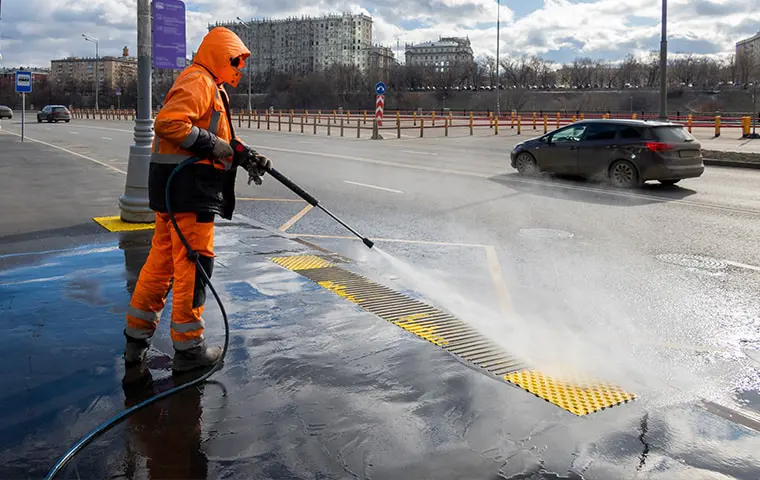At first glance, it’s obvious the healthcare industry bears most of the burden when it comes to COVID-19. They’ve had to implement new strategies for treating patients, rely heavily on telehealth and virtual visits, adding wide-scale contact tracing, and more. Unfortunately, the damage to normalcy stretches much further than just healthcare. Insurance companies are pushed to help their customers cope with these costs and cover items they’ve never had to think about before. Banks are drawing out mortgage and loan terms, offering deferments, and even pushing for the adoption of paperless trade agreements.
The food, travel, and hospitality industries are rapidly losing billions—approximately $24 billion over three months according to the International Foodservice Distributors Association. Those that remain open were able to pivot and offer take-out options, forcing many to change business tactics. In every industry, in every country, businesses are finding new ways to survive. They’ve changed their long-held ways of operation to ride out the struggle.
But while this is true of all industries, it’s also true that some businesses are thriving now more than ever. Amazon is a prime example. Due to isolation, many customers turned to online shopping to acquire their goods. Their profits increased to $75 billion in the first quarter of 2020. A jump of around $25 billion from the first quarter of 2019 (though they spent $4 billion in operating costs to fight COVID-19). Businesses that sell essentials such as toilet paper, as well as cleaning and sanitizing goods, have seen a rise as well. The impact on most businesses is quite obvious. However, the impact on industries such as trucking is much more complicated.
How COVID-19 Impacted the U.S. Fleet Industry
It’s difficult to pin down the exact impacts seen to the trucking industry, as they have been both positive and negative. Below we’re taking a deep dive into these impacts and breaking down how the fleet industry has changed since the outbreak.
The initial impact on fleets was felt at the beginning of the COVID-19 outbreak, as crates from China came into the ports. Since then, the entire industry is seeing disruptions in the supply chain, despite there being a need for emergency deliveries. Some industries, such as food retailers, are taking up a large portion of the deliveries.
In fact, some grocery chains have asked for additional help regarding supply, since their demand jumped by 300% practically overnight. Because there was such a high demand for groceries, cleaning supplies, toilet paper, and more, some fleets are busier than ever. Drivers and fleet managers are working longer hours to fulfill these COVID relief deliveries. Yet, other sectors, like restaurants and event supply, retail, and non-essentials, have essentially ceased altogether.
The automotive industry shutdowns have also impacted fleets since car manufacturers have enacted temporary shutdowns. This impact is felt all the way back to the ports, where around $34 billion in automotive parts are typically delivered each year. Vehicle manufacturers are experiencing temporary shutdowns, but even before the shutdowns in the U.S., Chinese manufacturers were going through their own shutdowns. Further down the line, consumers are experiencing trouble after purchasing vehicles, due to the shutdown of registration offices. This, in turn, makes it even more difficult to sell vehicles.
Then there are the ups and downs within the industry itself. The oil industry reduced production of crude oil by 10 million barrels per day, decreasing fuel barrel prices to $37.63 in April—a historic low. This is great for fleets since it greatly reduces costs during a time when every business is looking to find room in existing budgets. Even though many fleets are busier than ever with a huge wave of essential deliveries, there has still been a loss of 88,000 trucking industry jobs.
Much of this sounds like temporary change and for the most part, it likely will be (though the effects are likely to be felt for a long time). There are systemic changes that are more likely to remain even after the pandemic has ended. At the very least, the pandemic is surfacing conversations on trucking rules and regulations, which have notoriously seen only minor changes up until this decade.
Fleet Industry News: Changes to FMCSA Rules & Regulations
While regulation changes tend to move at a glacial pace, the opposite seems true in lieu of a pandemic. As such, there have been a number of changes that the FMCSA (Federal Motor Carrier Safety Administration) has enacted to help fleets deal with the crises.
One of the most notable changes is the creation of the emergency relief exemption. This exemption states that none of the HOS regulations apply if drivers are engaging in emergency relief. This means they don’t have to take their 30-minute breaks and there is no longer a 34-hour restart. Sleeper berth rules are also unregulated during this time. Still, to ensure there are safety measures in place, drivers must take a minimum of 10 hours of rest after each delivery.
Other changes to arise during the COVID-19 pandemic include:
- The delay in the International Roadcheck by the Commercial Vehicle Safety Alliance (CVSA).
- Domestic travel advisories do not apply to the trucking industry and other critical industries.
- Waivers for drivers whose licenses, medical cards, or permits have expired before June 30th.
- For fleet drivers encountering drug or alcohol problems during the pandemic, the Department of Transportation has issued guidance to help.
In these trying times, it can be difficult to stay up to date with regulations, and even harder to maintain all of the systems a fleet manager is tasked with. Learn more about how telematics is helping the fleet management industry during the pandemic at Azuga.








